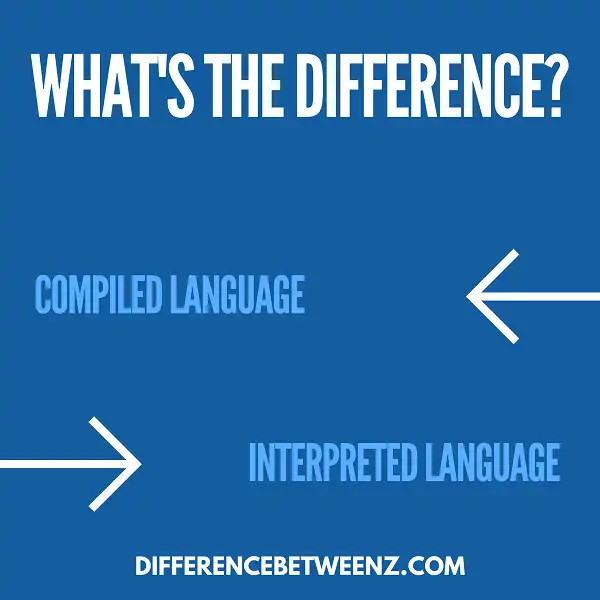Compiled and Interpreted Languages are two of the most important terms to know in computer programming. They are both commonly used, but they serve different purposes. A compiled language is translated into machine code, which can be executed without any further processing. On the other hand, interpreted language requires an interpreter to understand instructions and execute them one at a time. Though both languages have their benefits, understanding how they differ and what makes one better than the other is paramount for all web developers and programmers alike! In this blog post, we’ll go over the main differences between compiled and interpreted languages to help you complete tasks more efficiently when coding!
What is Compiled Language?
- A compiled language is a form of programming language that is assembled once, and then immediately converted into machine code. This in contrast to an interpreted language, in which the source code needs to be read each time it is used.
- Compiled languages can often execute quicker than interpreted languages and offer additional security due to the fact that they don’t need to reference external code.
- Compiled programs are often found in low-level applications such as embedded systems due to improved real-time performance. Whether or not compiled language is right for any given project depends on many factors, but the wide range of benefits it provides should be considered.
What is Interpreted Language?
- An interpreted language is a type of programming language based on human-readable source code that is written and then executed by an interpreter or other software.
- Interpreted language differs from compiled languages in that the former’s code is instead interpreted as soon as it is written, with no need for prior compilation. It is seen as advantageous because it saves time since the changes made to the code are immediately available after each line of text has been interpreed.
- Interpreted language also enables developers to create applications quickly, offering a great deal of flexibility regarding debugging and development speed. Interpretive languages are becoming increasingly popular due to their usability and efficiency, making them ideal for many different types of tasks.
Difference between Compiled and Interpreted Language
- Compiled and interpreted languages are two distinct categories of computer programming. Compiled languages take a program written in one language, the source code, and turn it into another language that the computer is actually able to run, normally the native machine code.
- In contrast, interpreted languages don’t get converted to machine-level code – instead, an interpreter reads them and performs the operations as it goes along.
- Compiling programs may take longer initially, but on the flip side, compiled programs tend to run faster than interpreted ones due to not needing to perform every operation each time they’re run which makes them ideal for computational tasks. Interpreted languages on the other hand are good for iterative development because you are able to see results quickly.
Conclusion
If you can tap into how your customer’s brains work at different stages in the purchasing process or lead funnel, you may be able to drive more sales with less effort. The neuroscience sales tips we’ve provided should help you get started thinking about how you can leverage the power of the human brain in your own digital marketing strategy.


